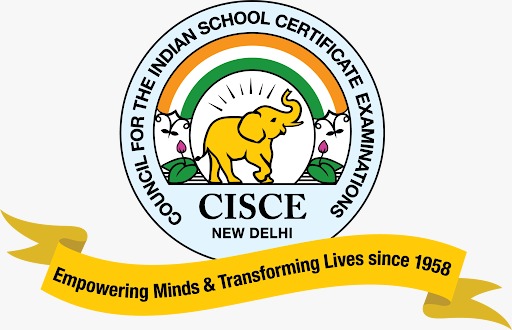Introduction
Academic excellence is crucial for personal growth, for career opportunities, and societal advancement. Being a Topper not only signifies securing high grades in the academic year but also understanding the in-depth analysis of the subjects. Setting clear goals, managing time effectively, staying organized, and seeking help when needed ensures success.
There are certain strategies to develop effective study habits and utilize resources wisely to embrace a growth mindset. These are the following strategies that foster resilience, perseverance, and a lifelong love for learning, paving the way for fulfilling academic journeys and a bright future.
10 helpful tips for achieving academic success
Following are the 10 helpful tips to achieve in-depth knowledge in academics which leads students to become high achievers.
Tip 1: Set Clear Goals
The foundation for success in any field is to set clear goals. The goals can be set by realizing what you want to achieve in the academic field. Is it a test, mastering a skill, or completing a particular project? Break down your goals into manageable steps with specific deadlines at regular intervals of time. The clarity provides direction and motivation, helping to stay focused and track the process. Regularly revisiting and adjusting the goals as needed according to the framework helps you stay aligned with your aspirations.
Tip 2: Develop Effective Study Habits
Effective learning can only be achieved through effective study habits. Find the techniques that work best for you, according to your lifestyle. Set a study schedule by finding a quiet and organized study space using strategic devices. Try to stay engaged with the material by taking breaks, asking questions, and seeking alternative resources if needed. Any effective study habit involves consistency and adaptability as the key features to optimize the learning potential.
Tip 3: Manage Time Effectively
Setting up a certain time and managing it effectively ultimately leads to success. Time management has been a renowned concept for balancing academic, personal, and social commitments. Prioritize tasks based on urgency and importance. There are various tools to utilize like to-do lists, calendars, and timers to allocate time efficiently. This helps in avoiding procrastination by breaking the overwhelming tasks into manageable chunks and tackling them efficiently. It is important and inevitable to say no to non-essential activities and delegate tasks to maximize productivity. Managing time effectively also leads to minimizing stress.
Tip 4: Stay Organized
Keep the relevant study materials, notes, and workspace tidy and clutter-free. This helps in maintaining organization which is vital for minimizing distractions and maximizing productivity. Use folders, binders, or digital apps to categorize and store information that is relevant and supplements to the study time. Develop a filing system for both physical and digital documents to easily locate and extract information. By staying organized, one can streamline their workflow, and imply their focus and determination on the tasks that matter the most.
Tip 5: Seek Clarification and Assistance
The endeavor to achieve academic success is prone to encountering challenges in the form of questions, confusion, and doubts. It is imperative to seek clarification without hesitation during office hours, class, or study groups. Reaching out for help can deepen your understanding and clarify any confusion. It is important to extract maximum advantage from tutoring services, online resources, or peer support networks to supplement the learning. Seeking assistance is a sign of strength, not weakness, that can ultimately lead to greater success.
Tip 6: Practice Regularly
Incorporating regular practice sessions into the study routine will reinforce concepts and build proficiency over time. Consistent practice helps in mastering skills and retaining information. Utilizing certain practice exam quizzes flashcards or interactive exercises to assess the subjects helps in identifying areas where there is a need for improvement. Embracing the concept of deliberate practice and focusing consistently on specific weaknesses by seeking feed feedback shall refine your skills continually.
Tip 7: Stay Motivated and Positive
To seek knowledge and achieve academic success or to maintain it further, it is important to maintain motivation and develop a positive mindset. This attitude helps in overcoming challenges and staying resilient in the face of setbacks. Set realistic expectations and celebrate the signs of progress at regular intervals. Find motivation from role models, motivational quotes, or personal rewards to fuel the determination and commitment. Cultivating a growth mindset by viewing failures as opportunities for growth helps in learning further. Surrounding yourself with supportive peers, materials and mentors shall uplift you during difficult times.
Tip 8: Stay Healthy
Along with mental well-being physical well-being is also essential for academic success. Prioritizing activities such as exercise, adequate sleep, healthy eating and stress management techniques like meditation or yoga shall help in achieving balance. Taking regular breaks to recharge and rejuvenate helps in improving mental health without feeling overwhelmed. A healthy body and healthy mind are the foundations for optimal performance in all areas of life.
Tip 9: Review and Reflect
Regular reviews of the progress and reflection on what’s working well shall give a reason for what could be improved further. Assessing study strategies, time management techniques, and goal-setting practices helps in identifying the areas for growth. Keep track of your achievements and setbacks, noting patterns and lessons learned along the way, and make a list of such so that you can spot the area where there is further improvement and in-depth analysis is needed. Alter the approach based on the subjects you are tackling and also on your lifestyle which helps to refine the skills and optimize the performance.
Tip 10: Stay Consistent and Persistent
Staying committed to the goals during the challenges and setbacks and maintaining a steady pace of progress by breaking tasks into manageable chunks leads toward the objectives. Consistency and persistence are the keys to long-term success. Embracing every setback as an opportunity and every win as data for future projects leads to achievement.
Tips to Write a Perfect Answer
1. Understand the Question
Before writing the answer it is imperative to ensure that you fully comprehend the question. Firstly break down the key concepts or components and identify what is being asked. Paying attention to the keywords dictates the scope and direction of the answer. By understanding the question thoroughly, the response can address the specific requirements.
2. Conduct In-depth Research
Gathering relevant information from credible sources can support the arguments or the assertions that have been written as the answers. Quote relevant statements from academic journals, textbooks, scholarly articles, and reputable websites to enhance the depth and accuracy of the content. Taking notes and organizing the research material facilitates the integration of the evidence into your writing seamlessly. Citing the sources or the case studies properly upholds academic integrity in understanding the concept.
3. Develop a Clear Structure
After deeply analyzing the question, organize the ideas logically by structuring your answer effectively. Start with the introduction, set the context, and outline the main points. Present the arguments coherently in the body paragraphs, focusing on different aspects with supporting evidence. Use topics, sentences, and transitions to maintain the flow and coherence between the paragraphs. Conclude the answer by summarizing the key points and reinforcing your main argument.
4. Demonstrate Critical Thinking
Engaging with the topic in the answer offers insightful interpretations, and challenging assumptions, and provides nuanced explanations to demonstrate the depth of the understanding. Support the analysis with evidence and logical reasoning, showcasing your ability to think critically and independently. Avoid oversimplistic and bland statements. Strive to present a well-thought-out response.
5. Write Concisely and Clearly
Be mindful of what is being asked of you as an answer and communicate such a response effectively. Use precise language and avoid unnecessary jargon or convoluted sentences which could complicate your reasoning. Ensure your ideas are expressed coherently and understandably. Review quickly to eliminate any errors.
6. Revise and Seek Feedback
Take time to revise your response or answer thoroughly before submission. Review the whole content to check for coherence, relevance, and accuracy. Make necessary revisions to strengthen your response, which refines your expression. Later, be open to constructive criticism and use it as an opportunity for growth and improvement.
Conclusion
These are the proven strategies to become a high achiever in academics. Incorporate these strategies for effective time management and setting specific goals.
FAQs (Frequently Asked Questions)
- What are the key qualities and habits of top-performing students?
Qualities like Diligence, Curiosity, Critical Thinking, and Resilience should be the top priorities. These top-performing strategies cultivate habits such as consistent study routines, active class participation, seeking clarification, and regular reviewing.
- How can effective time management contribute to becoming a topper?
Effective time management contributes to the top-up in allocating sufficient time to study, prioritizing tasks, and avoiding procrastination. These maintain a healthy balance between academic responsibilities and personal activities.
- What role do study techniques and strategies play in achieving top grades?
Study techniques and strategies play an important role in enhancing comprehension, retention, and recall of information. These include strategies like active recall, spaced interpretation, effective note-taking, and utilizing resources such as textbooks and peer collaboration.
- How important is consistency in academic performance for becoming a topper?
Consistency in academic performance demonstrates commitment, reliability, and a strong work ethic.
- What resources and support systems can help students in their journey to becoming a topper?
Libraries, academic counselors, tutors, digital apps, and online forums provide guidance, encouragement, and additional learning opportunities. This involves the students to excel academically and become a high achiever.






